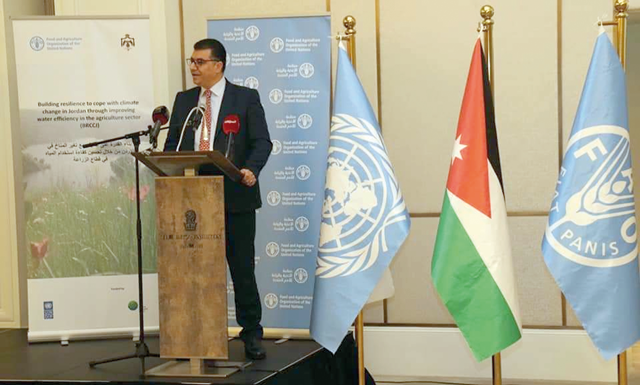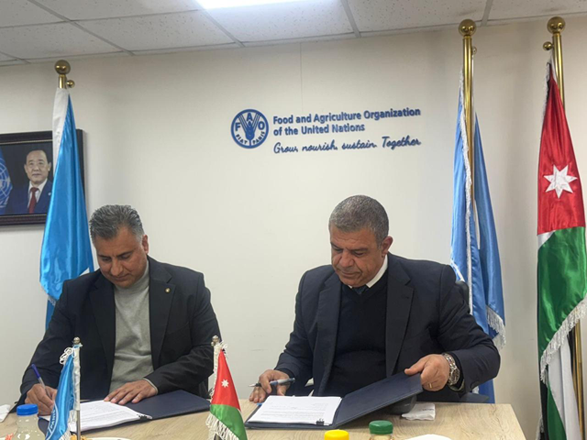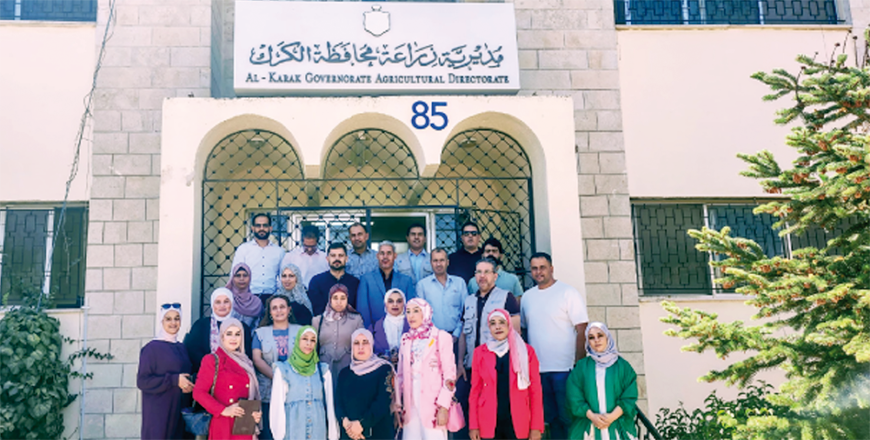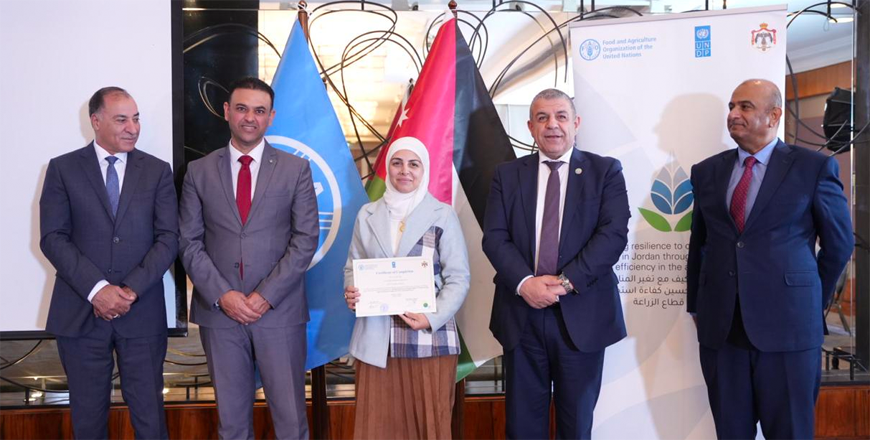You are here
FAO project aims to secure long-term water stability
By Rayya Al Muheisen - Nov 09,2022 - Last updated at Nov 09,2022

Khalid Hneifat, minister of agriculture, speaks during a workshop for the ‘Building resilience to cope with climate change in Jordan through improving water use efficiency in the agriculture sector’ project, on Wednesday (Photo courtesy of Ministry of Agriculture Facebook page)
AMMAN — The UN Food and Agriculture Organisation (FAO) on Wednesday launched the “Building resilience to cope with climate change in Jordan through improving water use efficiency in the agriculture sector” (BRCCJ) project.
Project activities, valued at $33.2 million, will be implemented at the Dead Sea Basin, Karak, Madaba, Tafileh and Maan, which according to the FAO, are the governorates most vulnerable to climate change and climate-induced water scarcity.
The project aims at increasing the country’s resilience to climate change by ensuring the long-term sustainability of its water management systems.
The project is funded by the Green Climate Fund (GCF) and implemented by FAO, in cooperation with the ministries of agriculture, environment, water and irrigation.
“Jordan is one of the most water-stressed countries in the region and in the world, made worse by climate change,” Qu Dongyu, FAO director general said during his opening remarks.
Dongyu added that this project is an important contribution to the country, and to the region’s climate action agenda.
“It will help the country address the complexity of the climate crisis,” Doygyu said.
“Water resources are among the most important challenges facing the agricultural sector,” Khalid Hneifat, minister of agriculture, said during his remarks.
Hneifat added that this challenge needs concerted efforts at the national and regional levels, adding that the international community must also help Jordan improve water usage efficiency, whether at the legislative level or via initiatives which contribute to providing the water quantities necessary for agriculture.
Meanwhile, GCF Forest and Land Use Specialist Marc Dumas said that the project will shift the paradigm in the agriculture sector from looking at crop productivity per unit of land to crop productivity per unit of water.
Other efforts include “reducing the demand on groundwater sources through efficient cropping and water use practices”, Dumas said.
“The project will bolster vulnerable farmers’ climate resilience, particularly for women, who play a critical role in Jordan’s agricultural sector,” Dumas added.
Related Articles
AMMAN — The Food and Agriculture Organization of the United Nations (FAO) in Jordan and Alhalat Developing co.
KARAK — The Food and Agriculture Organisation of the United Nations in Jordan (FAO), in cooperation with the Ministry of Agriculture, launch
AMMAN — As part of efforts to enhance climate change adaptation, mitigate its impacts on agriculture, and ensure sustainable food security,














